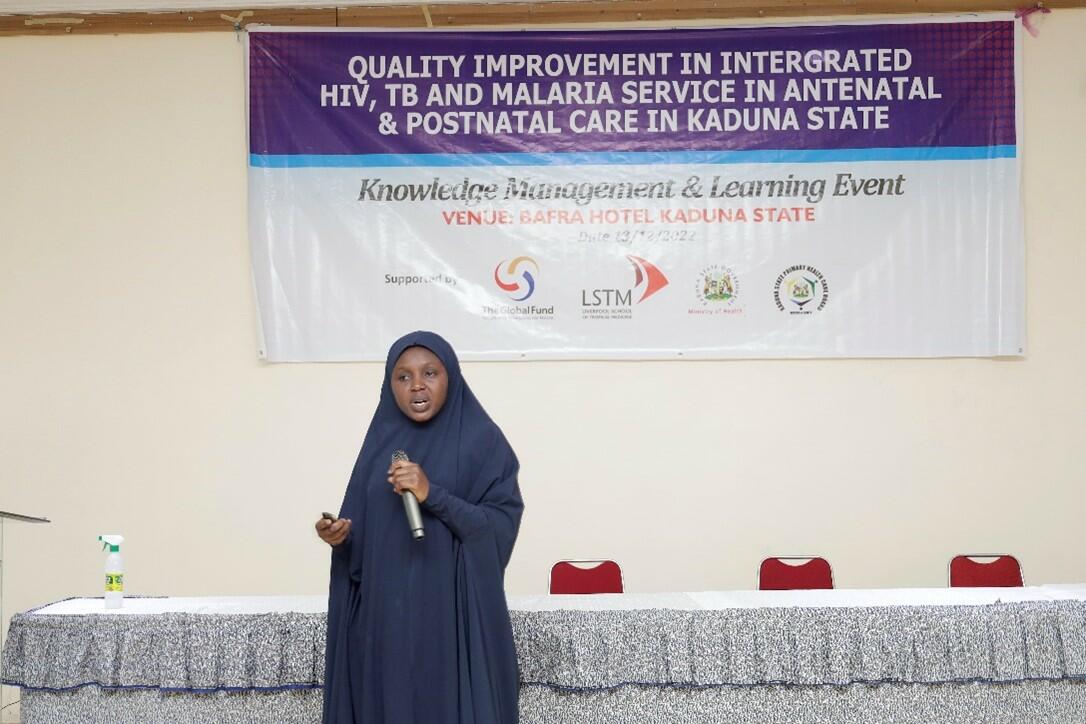
Liverpool School of Tropical Medicine (LSTM) Nigeria have been implementing the programme ‘Quality Improvement of integrated HIV, TB and Malaria Services in Antenatal and Postnatal Care’ in Kaduna and Oyo states Nigeria. The programme is funded by Takeda Pharmaceutical Company Limited through the Global Fund to fight AIDS, Tuberculosis and Malaria. LSTM works with the State Ministries of Health (MoH) and the State Primary Health Care Development Board (PHCDB) to deliver an implementation research programme for Maternal and Newborn Health to improve quality of care through integrating HIV, TB and malaria services in antenatal (ANC) and postnatal care (PNC). The programme works across the healthcare system to provide capacity building for healthcare workers, technical assistance and generating evidence to inform decision-making and policymaking in Maternal and Newborn Health. The programme supports 120 health facilities in Kaduna and Oyo states.
The programme is implemented through training of skilled health workers in Quality Improvement (QI) specifically the standards-based audit, ANC-PNC training, regular reviews of the QI process and continuous support through an organised mentorship process where mentors were trained and paired with health workers in the supported facilities. The mentorship process is monitored through logbooks for the mentors and mentees. So far, the programme has trained 828 skilled health personnel in ANC-PNC, 240 in QI, and 40 mentors that are supporting 260 mentees across both states.
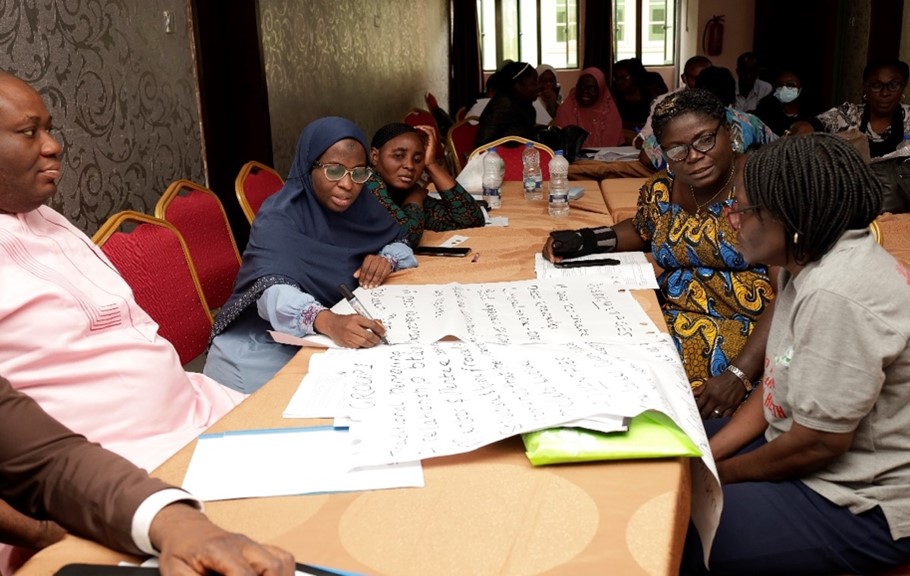
The mentors are supported by LSTM through a WhatsApp group where they can share their experience with their peers and the LSTM team.
“Today I placed a condom catheter balloon with the help of my mentor. I felt very happy when the patient stopped bleeding prior to transfer. Next time I will be able to do this by myself and I can teach my colleagues how to do it too” Excerpt from a mentee’s logbook after training on the use of condom catheters in the management of post-partum haemorrhage.
There was a one-day dissemination meeting in both Kaduna and Oyo states with stakeholders from the MoH, PHCDB, master trainers, and beneficiaries of the training. The meeting took place on 12th Dec 2022 in Kaduna state and 13th Jan 2023 in Oyo state. All relevant stakeholders were represented in the meetings. Some of the beneficiaries shared their experience with programme.
During the dissemination in Oyo state, the Director of Public Health Oyo said the most notable gain of the programme was the introduction of the mentorship process which has guaranteed sustainability for the update of the knowledge and skills learned by the health workers even after the programme has ended in the state. There is also the introduction of mental health and domestic violence screening during ANC-PNC using the Whooley and Edinburgh tools . These tools have been adapted by the state mental health unit and shared with all heads of facilities after an orientation meeting which was championed by a senior nurse-midwife who is one of the master trainers in the state.
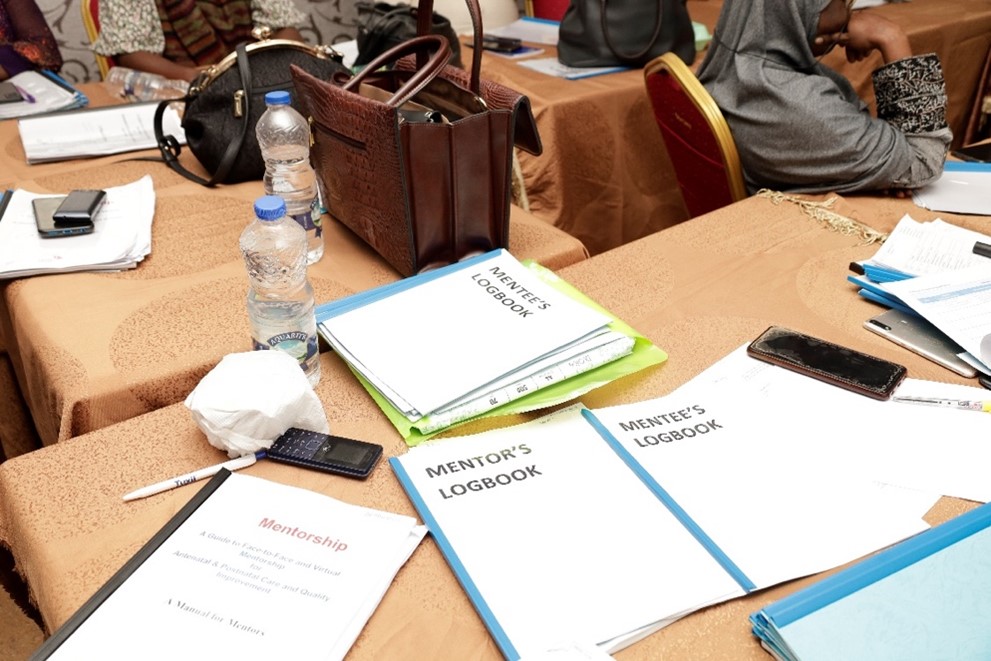
The Executive secretary PHCDB Oyo state commended the funders and organizers of the programme; he said “The LSTM programme has led to improved service delivery in our Primary Health Care (PHC) facilities, improved the health system structure, improved case management especially stabilizing patients before referral and communication skills between the PHC and referral hospitals. This has led to improved quality of care in PHCs”.
The LSTM Nigeria country director, Hauwa Mohammed, gave a summary of the programme in both states and explained how implementation has transitioned from delivering the training solely face-to-face to a Blended-Learning (BL) approach. For this, LSTM has partnered with the World Continuing Education Alliance (WCEA) to host part of the training which is self-directed learning (SDL) comprising recorded lecture slides and reading materials. Participants are given access to the platform to complete the SDL at their own pace. Other components of the BL are Zoom sessions and therefore reduced days for face-to-face contact. This approach is important to ensure health workers are not kept from their duty posts for prolonged periods.. A multicounty feasibility on this BL approached included Oyo state where skilled health workers shared their experience with the BL training.
“The blended training is an eye opener that one can still learn even when not in the class. It saved my time, and I was able to do all other things….. (Nurse-midwife)”
Representatives of WHO and UNICEF working in Oyo state also attended the dissemination meeting. The UNICEF representative commended LSTM for continuing with the training and reaching health facilities during the COVID-19 pandemic while the WHO Director in Oyo state also commended LSTM and asked the programme to be extended to other Local Government Associations (LGAs), especially the hard-to-reach areas.
In December 2022, LSTM attended the Tomotiya programme organised by the MOH and UNICEF to bring together all partners working in Oyo state. In the meeting, the Director of Planning, Research, and Statistics (DPRS) presented the statistics showing an increase in the number of births attended by skilled health personnel, a reduction in maternal mortality and, neonatal mortality, a reduction in the incidence of malaria in pregnancy, and increased use of Kangaroo mother care. There was also increased use of Long-lasting insecticidal nets (LLIN) and an increase of Intermittent Preventive Treatment for the prevention of malaria in pregnancy. This improvement was observed in 6 of the 10 LGAs covered by LSTM in Oyo state.
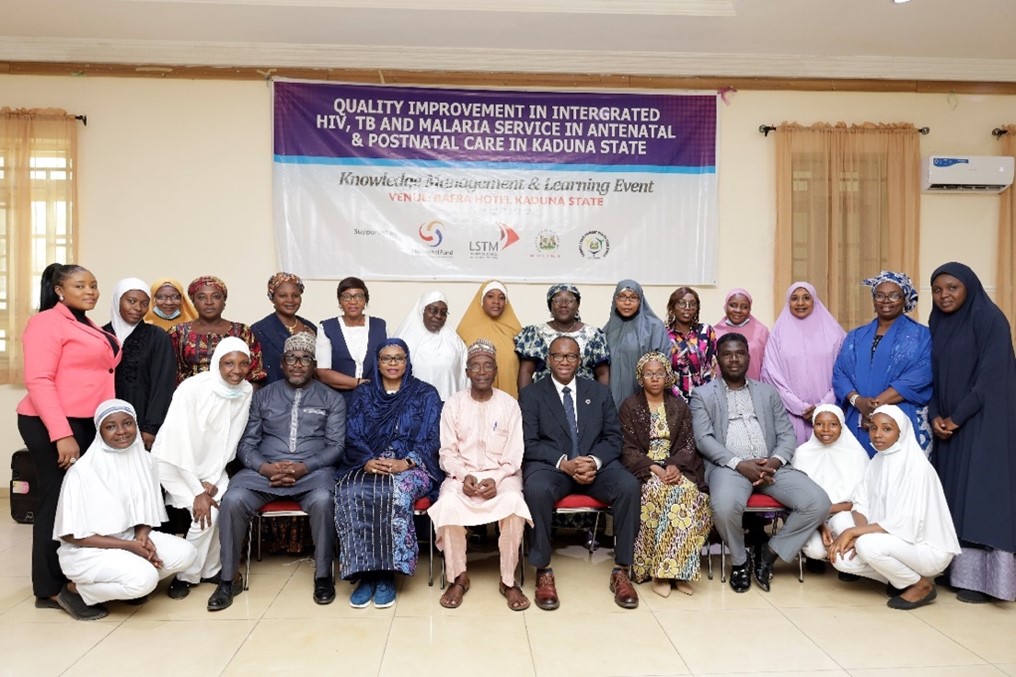
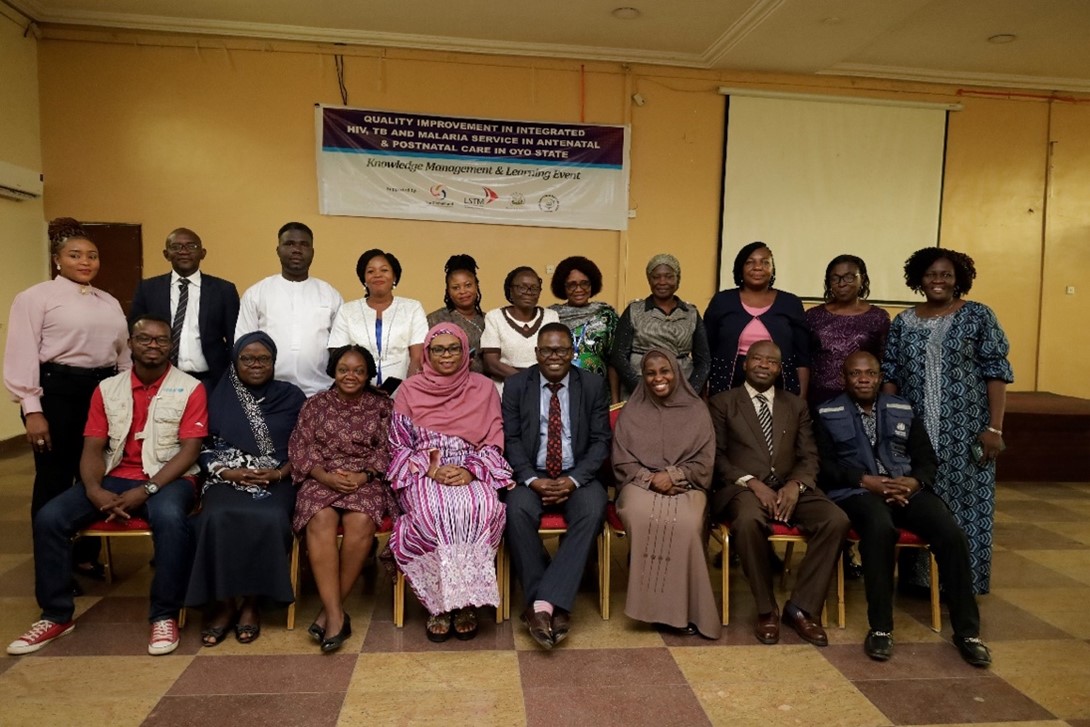
Conclusion
After 2years of implementation the ‘Quality Improvement of integrated HIV, TB and Malaria Services in Antenatal and Postnatal Care’ in Kaduna and Oyo states Nigeria is having an impact on the quality of ANC/PNC services at primary care level. Innovations in training has resulted if cost effective training. The project has high level of stakeholder engagement and ownership by policy makers in both states, who have advocated for the expansion of the programme to more sites in both states. A study to evaluate the uptake and implementation of tools to improve detection of mental health disorders and gender-based violence during pregnancy will be under taken in year 3 and 4 of the project. Additionally, the impact of this complex intervention package on Respectful Maternity Care will assessed in year 3 and 4 of the project.